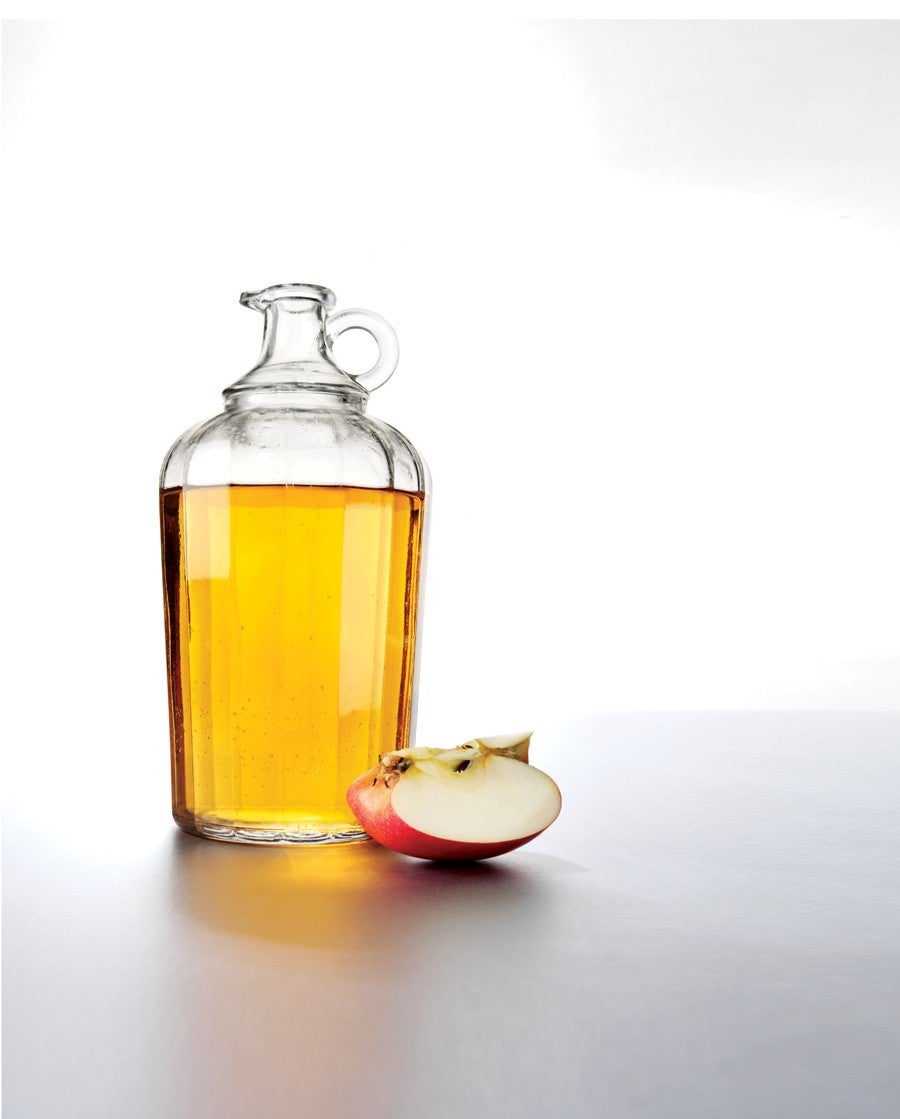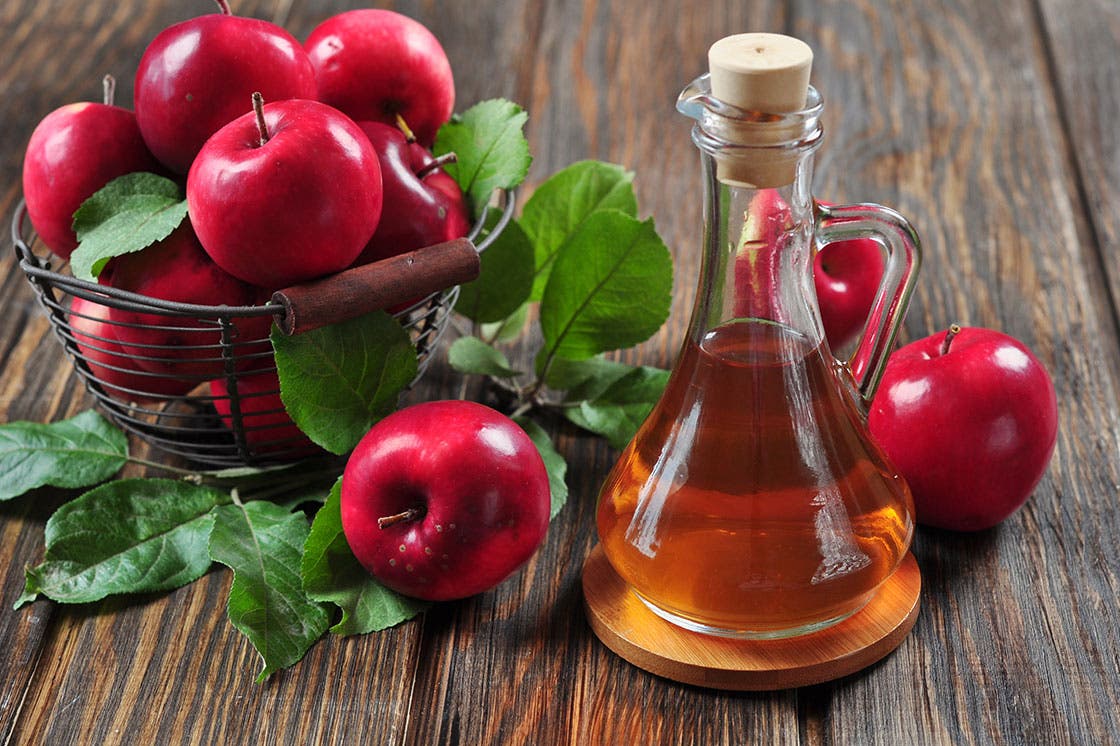Apple Cider Vinegar


How It Heals Pulverize apples into a slurry of juice and pulp, allow the slurry to ferment so that the fruit sugar converts to acetic acid, and you have a folk remedy for a laundry list of ailments. By helping break down proteins and other nutrients, apple cider vinegar may in fact improve digestion, says Bastyr University associate professor and certified nutritionist Jennifer Adler. Also, a study in the journal Annals of Nutrition & Metabolism found that adding 2 teaspoons of apple cider vinegar to a meal containing carbohydrates reduced postmeal blood glucose in healthy people by about 20 percent; the vinegar appears to slow the release of sugar into the bloodstream. “This may confer protection against diabetes and spur weight loss,” Adler says. The cobweb-like substancereferred to as the “mother of vinegarthat you see floating in the fluid is believed to contain most of the cider’s nutrients, enzymes, and beneficial bacteria. According to Adler, these bacteria may help boost the immune system. To best reap the brew’s medicinal benefits, Adler recommends purchasing raw unpasteurized apple cider vinegar.
Eat It Up Apple cider vinegar’s bright, crisp taste and more-than-a-hint-of-tart flavor work well with lentil soups, slaws, baked beans, braised cabbage, and roasted winter squash. “Bean salads and cooked whole grains also take well to apple cider vinegar’s tang,” says Adler. Or try the cider in a hot or cold beverage lightly sweetened with natural honey or agave syrup. To improve digestion and blood sugar control, Adler suggests mixing 2 tablespoons of apple cider vinegar with 1 cup of water and imbibing before meals. Due to its acidity, apple cider vinegar can burn the esophagus, so adequate dilution is a must.